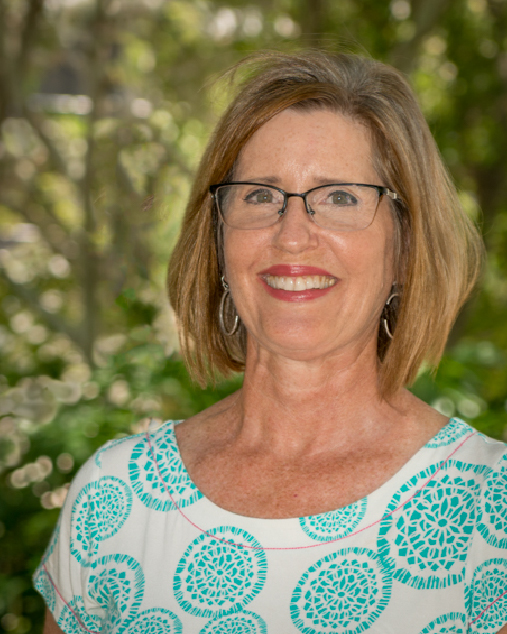When the Heart Is Ready

Julie McGue
Author
Ever since I met up with my friend Teri a few weeks ago at a local coffee spot, I’ve been focused on forgiveness. At first, the two of us caught up on the usual things like how we spent the holidays, our kids and grandchildren, and the status of our writing projects. But over the second cup of coffee the conversation deepened. Even though the stories we revealed were dramatically different, a theme emerged, linking us: the wily nature of forgiveness.
According to Merriam-Webster, to forgive means “to cease to feel resentment against.” Like me, Teri’s religious upbringing stressed the importance of “forgive and forget.” This philosophy is based on the notion that when we forgive those who have hurt or harmed us, we release an encumbered soul to live more fully, more positively.
But as Teri pointed out, “Some hurts make it very difficult to bury the proverbial hatchet.”
For nearly a decade after divorcing her first husband, Teri tried everything to free herself from the anger in her heart. Because of their daughter, Teri maintained a civil relationship with this man, but it was difficult to forgive the many cruel things he had said and done. Therapy, prayer, and reflection proved marginally helpful. Then late last Fall, Teri realized she was at peace with her first husband’s role in her life. She had no explanation for why forgiveness suddenly became possible, but she was grateful for the lighter attitude.
“I guess my heart was finally ready to forgive him. But it just wouldn’t be rushed,” Teri said.
And then she offered me a slow smile, saying, “The timing couldn’t have been crazier. Shortly after I realized I had finally forgiven him, he died of an unexplained illness.
“Oh my,” I said, my eyes wide, “what a strange turn of events. There’s someone like that in my life, too.”
I went on to share with Teri the details about what occurred last spring shortly after my husband died. Someone who had been dear to me, a person I had known for a long time and trusted, tried to take advantage of my vulnerability. When I attempted to set clear boundaries with him, he lashed out (see the post, here).
As I stared into Teri’s kind, brown eyes, I whispered, “He badmouthed me and tried to turn others in our inner circle against me. I couldn’t have been more shocked and disturbed. I never saw any of that coming.”
I explained the ripple effects of the incident, how it challenged my sense of trust, caused me to withdraw and question all the relationships I valued.
As I sipped the last bit of coffee, I said, “It was a dark moment in a very bleak point in my life. And even though this person has since apologized, it’s going to be a long time before I can forget his bad behavior or establish any kind of relationship.”
Psychological experts agree that in most cases, forgiveness is healthy and recommended, but sometimes there’s more power in not forgiving. “What does not warrant forgiveness, however, is true malevolence: When there is no remorse shown, nor ignorance to blame, but a person has received satisfaction from another’s pain, forgiveness is unnecessary (Psychology Today).”
When it was time to end our coffee date, Teri gave me a warm smile as she rose from her seat. “Forgiving doesn’t mean forgetting, nor does it mean that you’ve given the message that what someone did was OK. It just means that you’ve let go of your anger towards someone, or towards yourself.”
I laughed with my friend when she said, “If forgiveness was easy, everyone would be doing it.”
Based on my friend Teri’s experience and the research on forgiveness, I expect that one-day forgiveness will come, but for now I’m not forcing it. Like grief, forgiveness is a wily emotion. In one sense it does not belong to us. It has its own energy. The heart cannot be forced into love, compassion, hate or forgiveness. Using the wisdom I offered in a previous post, I’m trusting my intuition. Forgiveness will happen when my heart is ready.
When you hold resentment toward another, you are bound to that person or condition by an emotional link that is stronger than steel. Forgiveness is the only way to dissolve that link and get free. –Katherine Ponder
FOLLOW ME
- Julie’s interview with Kelly Schucknecht, a popular Canadian book reviewer and book blogger.
- Julie will guest on This Adoptee Life Podcast on March 4th.
- If you missed it, Julie’s podcast interview with host Simon Benn on Thriving Adoptees can be listened to here.
- April 21-23, Julie will participate in a writing workshop at the notable Ragdale Retreat Center in Chicago.
“When you hold resentment toward another, you are bound to that person or condition by an emotional link that is stronger than steel. Forgiveness is the only way to dissolve that link and get free.” –Katherine Ponder
Don’t miss a blog post!
Receive my blog posts directly to your inbox.



I liked this writing very much.
Yes- at some point in life “forgiveness “ is something we all have to come to grips with FOR OURSELVES SAKE. The stress that harboring anger and resentment or even the pain of not forgetting or re-living the pain- is one of the worst things for the heart, immune system, and overall health. Forgiveness is part of self care💖
Beautiful Julie! You are awesome!
Beautiful writing Julie! You are awesome